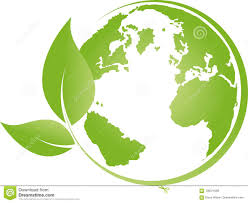KNOW YOUR SELLER, KNOW YOUR CBD
My name is Darby Alexandra Turner and I started this little business all on my own with a little love and support from my family and friends. All of the CBD oil I use is colorless, tasteless, and grown right here in one of the best hemp farms in the wonderful state of Kentucky.
I want to start by saying thank you for taking the time to check out my website and I hope you find the product your looking for, but if you don't, keep your eyes peeled because I will be adding new products all the time!
I use full spectrum CBD oil in all of my products which includes all 113 cannabinoids that can be drawn out of the hemp plant.
All of my bath products are made with organic essential oils and/or dried flower petals and other all natural ingredients that are needed to make bath bombs and fizzes do just what they need to do when you're ready to use them :)

TRADITIONAL WAY OF FARMING
In the 18th century, John Filson wrote in Kentucky and the Adventures of Col. Daniel Boone (an appendix of his 1784 work The Discovery, Settlement and Present State of Kentucky) of the quality of Kentucky's land and climate for hemp production. The first hemp crop in Kentucky was raised near Danville in 1775.
Kentucky was the greatest producer of U.S. hemp in the 19th and 20th century, with thousands of acres of hemp in production. Senator Henry Clay was a "hemp pioneer" and the "strongest advocate" of Kentucky hemp. He grew it on his Kentucky estate Ashland and brought new seeds to the state from Asia. Clay's oratory on the Senate floor in 1810 in favor of requiring the Navy to use domestic hemp exclusively for ship's rigging was widely reprinted in newspapers and is credited for beginning the elaboration of the American System. According to a 1902 periodical, Kentucky was responsible for 3/4 of U.S. hemp fiber production. Production reached a peak in 1917 at 18,000 acres, mostly grown in the Bluegrass region, then waned due to market forces after World War I as other sources of fiber were introduced. A Federal program to reintroduce hemp for wartime needs in Kentucky and other states during World War II reached 52,000 acres in Kentucky in 1943. The WWII effort is documented in the USDA film Hemp for Victory.
Under federal law, the tetrahydrocannabinol (THC) present in both cannabis and hemp remains a schedule I controlled substance.
Under state law, all hemp grown in compliance with the 2014 farm bill must have a THC content below 0.3%. Farmers participating in the program must use seeds provided by an educational institution with a DEA license and use varieties expected to be low in THC. A sample of each farmer's hemp crop is tested by the state
The Hemp Farming Act of 2018 is a proposed law to remove hemp (defined as cannabis with less than 0.3% THC) from Schedule I controlled substances and making it an ordinary agricultural commodity.
In late March 2018, Senate Majority Leader Mitch McConnell announced he would introduce legislation legalizing hemp production in his state, Kentucky, and nationally. McConnell introduced the bill, S.2667, on the Senate floor on April 12, 2018, co-sponsored by Oregon senators Ron Wyden and Jeff Merkley. McConnell announced that Representative James Comer of Kentucky would introduce a companion bill in the House of Representatives. The companion bill, H.R. 5485, was introduced on April 12, with Colorado Representative Jared Polis co-sponsoring.
In addition to removing low-THC cannabis from regulation under the Controlled Substances Act, the 2018 act would avail hemp farmers of water rights and federal agricultural grants, and make the national banking system (in a gray area for cannabis industry) accessible to farmers and others involved; and allow for other benefits of production of a recognized crop such as marketing, agronomy research, and crop insurance.


